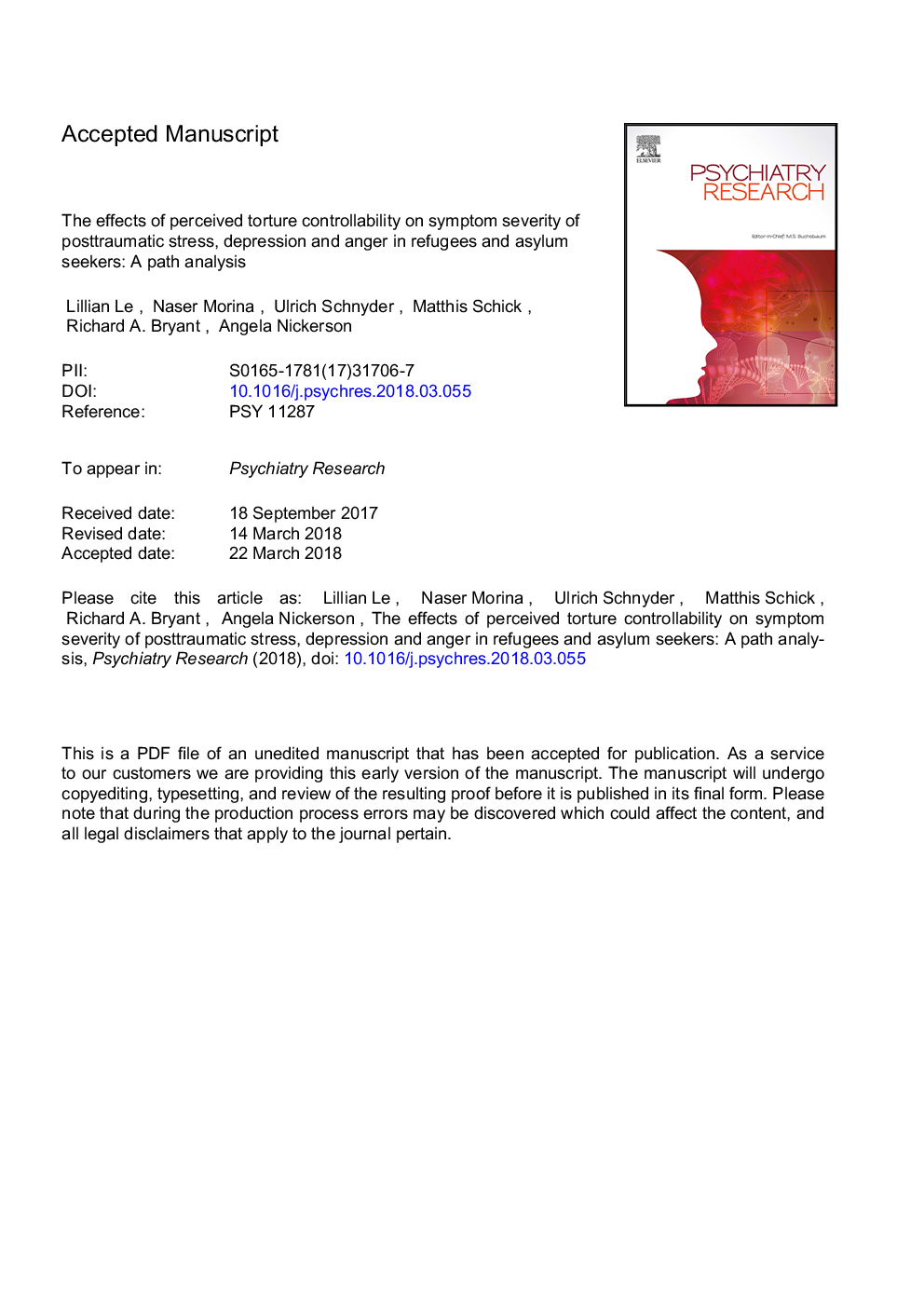ترجمه فارسی عنوان مقاله
تأثیر کنترل پذیری درک شکنجه بر شدت علائم استرس پس از سانحه، افسردگی و خشم در پناهندگان و پناهجویان: یک تحلیل مسیر
عنوان انگلیسی
The effects of perceived torture controllability on symptom severity of posttraumatic stress, depression and anger in refugees and asylum seekers: A path analysis
| کد مقاله | سال انتشار | تعداد صفحات مقاله انگلیسی |
|---|---|---|
| 119242 | 2018 | 38 صفحه PDF |
منبع

Publisher : Elsevier - Science Direct (الزویر - ساینس دایرکت)
Journal : Psychiatry Research, Volume 264, June 2018, Pages 143-150
ترجمه کلمات کلیدی
پناهندگان تروما شکنجه، اختلال استرس پس از سانحه، کنترل خشم،
کلمات کلیدی انگلیسی
Refugees; Trauma; Torture; Posttraumatic stress disorder; Controllability; Anger;

